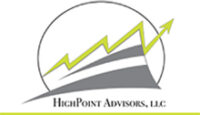As a small business owner, planning for retirement may not always be at the forefront of your mind. However, establishing a solid retirement plan is essential for securing your financial future and ensuring a comfortable life after you decide to step away from your business. At HighPoint Advisors, LLC, we work with clients in central New York, Syracuse, and other markets. Our advisors work with both owners and employees of the many businesses we serve to help them find the right fit for various types of retirement plans.
Here, we explore the benefits of different types of small business retirement plans, including their tax implications. By understanding these options, you can make an informed decision that aligns with your business goals and personal financial objectives.
Savings Incentive Match Plan for Employees IRA (SIMPLE IRA)
The SIMPLE IRA is a retirement plan option specifically designed for small businesses with fewer than 100 employees. Let’s explore its benefits:
- Easy Administration: As the name suggests, a SIMPLE IRA is easy to set up and maintain, with minimal administrative responsibilities compared to other retirement plans. This makes it an attractive choice for small businesses with limited resources.
- Employee Contributions: SIMPLE IRAs allow employees to contribute to their retirement accounts through salary deferrals. These contributions have always been allowed only on a pre-tax (Traditional) basis, but the SECURE ACT 2.0 changed the rules to allow after-tax (Roth) contributions as of 2023. Contributions made pre-tax will lower their taxable income and potentially reduce their overall tax liability.
- Employer Matching or Non-Elective Contributions: Employers must make either matching contributions or non-elective contributions to their employees’ SIMPLE IRAs. The matching contribution is a dollar-for-dollar match of employee contributions up to a certain percentage of their salary, while non-elective contributions are a fixed percentage of employee compensation. These employer contributions are tax-deductible, providing potential tax advantages for the business.
- Lower Contribution Limits: The maximum contribution limit for employees in a SIMPLE IRA is $15,500 (as of 2023), with an additional catch-up contribution of $3,500 for employees age 50 or over.
Simplified Employee Pension (SEP) IRA
A Simplified Employee Pension (SEP) IRA is a straightforward retirement plan that offers benefits to both employers and employees. Key features of SEP IRAs include:
- Employer Contributions: With a SEP IRA, employers make contributions to their employees’ retirement accounts. Similar to the SIMPLE IRA, these contributions now are available to be made both on a pre-tax and Roth basis as a result of the SECURE ACT 2.0. Contributions made on a pre-tax (traditional) basis are generally tax-deductible for the employer, helping to reduce their taxable income.
- Employee Eligibility: SEP IRAs are advantageous for small businesses with few or no employees, as contributions are made solely by the employer. However, employees who meet certain eligibility requirements, such as age and service criteria, can participate and benefit from the plan. It’s important to note that the employer must contribute an equal percentage of compensation for each employee in the plan.
- High Contribution Limits: SEP IRAs allow employers to contribute up to 25% of eligible employees’ compensation, capped at $66,000 (as of 2023). This flexibility makes it an attractive option for business owners seeking to maximize their retirement savings. Catch-up contributions are not a feature of SEP IRAs, because the contributions generally are made only by the employer.
Individual 401(k) (also known as Solo 401(k))
The Individual 401(k), also known as a Solo 401(k), is designed for self-employed individuals or small business owners without employees, except for their spouses. Here are some advantages of this plan:
- Increased Contribution Limits: Individual 401(k) plans permit higher contribution limits compared to other retirement plans. As of 2023, the maximum contribution limit from all sources is $66,000 ($73,500 inclusive of the catch-up contributions if age 50 or older). This allows for accelerated retirement savings and potential tax benefits.
- Flexibility in Contributions: With a Solo 401(k), you have the option to contribute as both an employer and an employee. As the business owner, you can make contributions based on your compensation, while also making elective deferrals from your personal income.
- Roth Option: The Individual 401(k) plan also offers a Roth component, allowing you to make after-tax contributions. This means your withdrawals in retirement could be tax-free, providing valuable tax diversification in your retirement portfolio.
Simplified 401(k) Plans (also known as a Safe Harbor 401k)
Simplified 401(k) plans, also known as Safe Harbor 401(k) plans, are suitable for small businesses with a few or more employees. These plans offer benefits such as:
- Employer Matching or Non-Elective Contributions: To encourage employee participation, employers must make either matching contributions or non-elective contributions to their employees’ retirement accounts. These contributions help attract and retain talented employees while providing additional tax advantages for the employer.
- Favorable Testing Rules: Safe Harbor 401(k) plans have rules in place to satisfy specific testing requirements, simplifying the administrative burden and cost for employers. As long as the employer plays by the rules, this ensures compliance with the Internal Revenue Service (IRS) rules and avoids penalties for the business.
- Contributions: Contributions to a Safe Harbor 401k are the same as other 401k plans. Employee deferral limits for 2023 are $22,500 ($30,000 with catch-up contributions), and total contributions including employer contributions are $66,000 ($73,500 with catch-up contributions).
- Tax Deductibility: Employer contributions made to the Simplified 401(k) plan on a pre-tax basis are generally tax-deductible, reducing the overall taxable income for the business.
Select the Right Small Business Retirement Plan With HighPoint Advisors, LLC
Selecting the right small business retirement plan is crucial for securing your financial future while enjoying various tax benefits. Whether you choose a SIMPLE or SEP IRA, Individual 401(k), or Safe Harbor 401(k) plan, each option offers unique advantages that cater to different business structures and goals. By working closely with our qualified financial advisors and tax professionals, you can design a plan that will take your retirement planning to new heights.
Contact us today to talk more about how HighPoint Advisors, LLC, can help.


